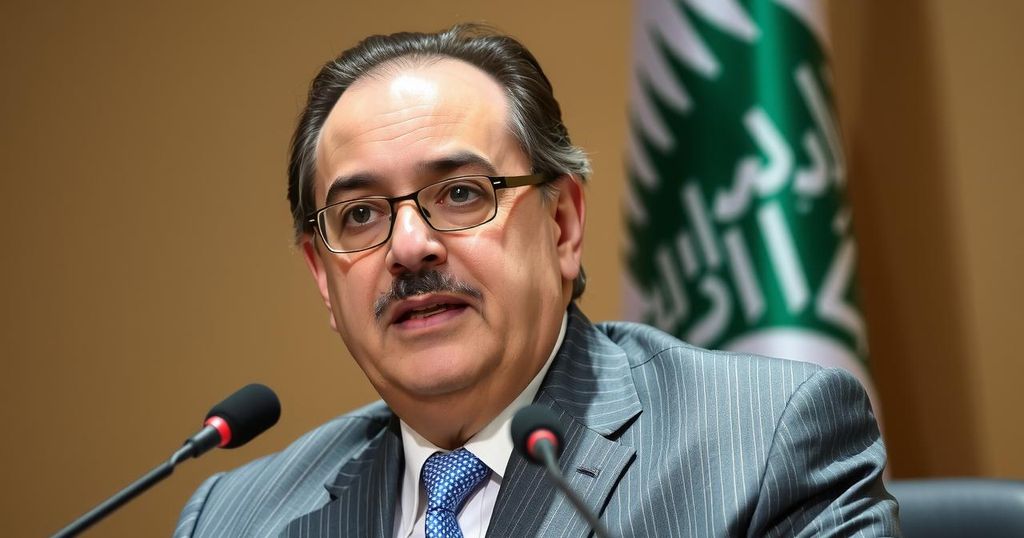Lebanon’s President Joseph Aoun appointed Nawaf Salam as the new Prime Minister amidst a two-year caretaker government. Salam, currently a judge at the ICJ, received broad parliamentary support. His appointment reflects hopes for reform amid an ongoing economic crisis, yet he faces significant political and economic challenges moving forward.
Lebanon’s President Joseph Aoun appointed Nawaf Salam, a prominent international jurist and presiding judge at the International Court of Justice, as the new Prime Minister on Monday. This decision follows a two-year period in which the nation operated under a caretaker government amidst severe economic turmoil. Aoun’s announcement comes after consultations with lawmakers, leading to the endorsement of Salam by a majority of 84 parliament members, while nine supported the continuation of interim Prime Minister Najib Mikati and thirty-five abstained from choosing either candidate.
Salam, who was abroad at the time of his selection, is expected to return to Lebanon shortly to begin the process of forming a government. The president expressed optimism for a prompt resolution, stating that he hopes for a smooth and swift government formation. Discussion among lawmakers indicates that Salam’s nomination represents a significant political shift, characterized by a rejection of corruption and an aspiration for governmental reform to address the country’s dire economic situation.
The newly appointed Prime Minister faces significant challenges, including the necessity of implementing reforms to gain the support of international donors and the reconstruction of areas devastated by conflict, particularly from the Israel-Hezbollah war. Furthermore, Salam is tasked with navigating Lebanon’s complex political landscape following previous years of governance marked by instability and a reliance on cronyism. Some legislators called for Hezbollah to transition from armed activity to political engagement, underlining a shift in the political climate.
Despite the optimism surrounding Salam’s nomination, critics, especially those aligned with Hezbollah, have expressed apprehensions, labeling the appointment as reflective of external influences on Lebanese politics. Nevertheless, Salam’s supporters praise him as a neutral and reform-minded figure capable of leading Lebanon out of its multifaceted crises.
Lebanon is currently grappling with one of the worst economic crises in its history, characterized by hyperinflation, widespread poverty, and a failing banking system. The country has been without a functioning government for over two years, resulting in deep political divisions and instability. Historical patterns of political patronage and influence from external actors, particularly Iran and the United States, have further complicated governance in Lebanon. Nawaf Salam’s appointment represents both an opportunity for reform and a potential challenge, given the entrenched political dynamics and the necessity for cooperation among a divided parliament and various political factions.
In summary, President Joseph Aoun’s selection of Nawaf Salam as Prime Minister signifies a critical juncture for Lebanon, potentially heralding changes toward governance reform and economic recovery. However, significant challenges lie ahead in forming a stable government amidst complex political dynamics. The nation’s recovery will depend largely on Salam’s ability to implement much-needed reforms while garnering support from both domestic and international stakeholders.
Original Source: www.hindustantimes.com






